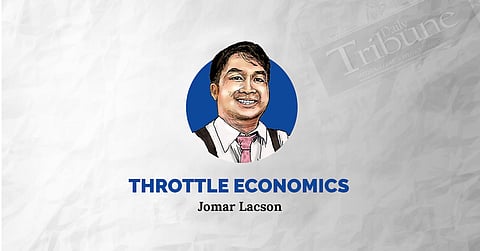
- NEWS
- the EDIT
- COMMENTARY
- BUSINESS
- LIFE
- SHOW
- ACTION
- GLOBAL GOALS
- SNAPS
- DYARYO TIRADA
- MORE

It was reported in 2024 that the Philippines ranked 77th out of 81 countries in a study by the Program for International Student Assessment (PISA) in all categories. In other words, the performance of Filipino students was assessed to be one of the world’s weakest with respect to math, science and reading.
The report on our low ranking hit home when last month, Vice Ganda, one of the main hosts of It’s Showtime, a popular noontime show, lamented the lack of knowledge of a 20-year-old candidate in the show’s beauty contest segment about the Commission on Elections.
With elections drawing near, Vice Ganda was visibly troubled about the candidate’s response and said that this reflected a systemic education crisis in the country that needs to be urgently addressed.
The month before, the results of a second study by the Education Committee (EdCom) were released, indicating the problems of the Philippine education system and recommendations to resolve them.
The diagnosis of the EdCom revealed how far behind the Filipino learner is compared to their global peers, which should shake all Filipinos to the core.
As discussed in a news program in February 2025, a key result of the EdCom report stated that even though the Constitution says education should have the biggest share of the national budget, how much we spend over the life cycle of a student may not be optimal.
It was revealed that we are underspending in the primary school years, with an average spend of P18,000 per student versus the P40,000 per student for Vietnam.
The consequences of this underspending are: 1) the participation rate in higher levels of education and ultimately graduating is much lower than our foreign peers, and 2) the functional literacy (the ability to read and understand what you have read) of Filipino students is low.
There are other insights from the EdCom reports but this pain point is critical to Philippine firms and strategic investors. The present and future workforce that Philippine companies will inherit may be uncompetitive relative to our neighbors, such that instead of exporting, we will now import services.
We also need to consider that companies will have to spend more to upskill their workforce since the current set of skills and capabilities fall short.
And it is not like companies in the Philippines are not investing in human capital as research from the ATRAM Sustainable and Development Growth Fund (SDGF) observes.
The ATRAM SDGF is an equity Unit Investment Trust Fund (UITF) that invests in top-ranked companies in terms of integrating sustainability using the United Nations Sustainable Development Goals (SDGs) as a guide for its metrics.
One of the insights we have from the sustainability research is that the integration of Quality Education (SDG 4) explains a high proportion of the returns of the SDGF.
In 2021 and 2024, the SDGF was one of the top performing UITFs in the Philippine market.
Our research reveals that large companies invest the most in their workforce and have corporate social responsibility (CSR) initiatives that offer scholarships to both their workforce and/or other communities they support.
Banks as part of the services sector are naturally predisposed to invest more in human capital. Companies with foundations that have ties to universities or colleges are also likely to spend more on education.
However, even among firms, there is a clearer prioritization of investment at the tertiary level and a lack of investment for primary education. And this is understandable.
Like investing in startups, investing in human capital at its initial stages is high risk and has a duration/horizon much longer than what typical balance sheets hold.
It will take very long-term and sustainability-centric strategic thinking for companies to invest in human capital at its primary phase.
But what is the cost of not investing? Without the improvement of functional literacy, or worse, its deterioration, this will shrink consumer markets, hurt service levels, and incur more spending for upskilling and retraining down the road.
Averting this education crisis should be factored in not just at the national level but also integrated into business strategies of progressive companies. And Vice Ganda did hit a raw nerve there, and rightfully so, that should compel many into thinking and painfully into action.
